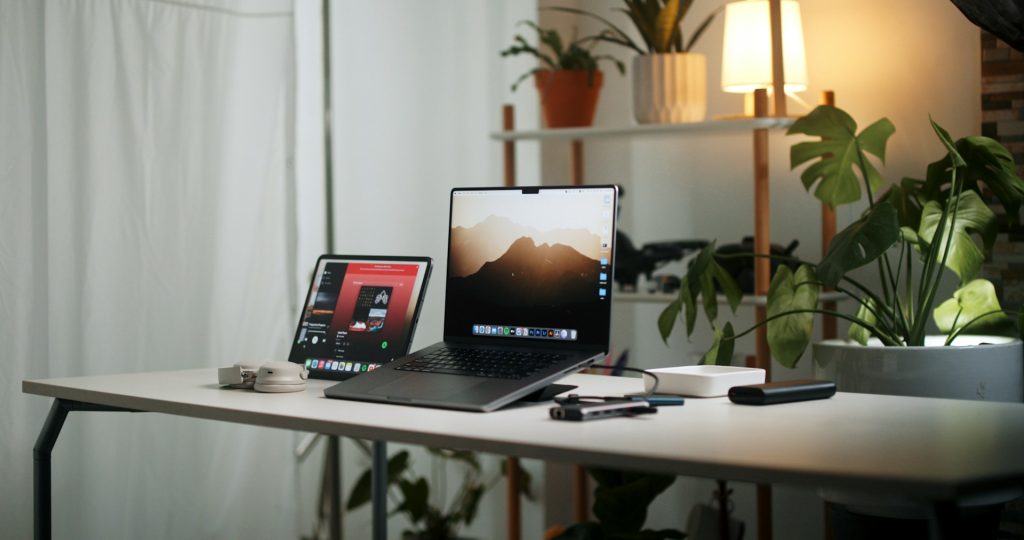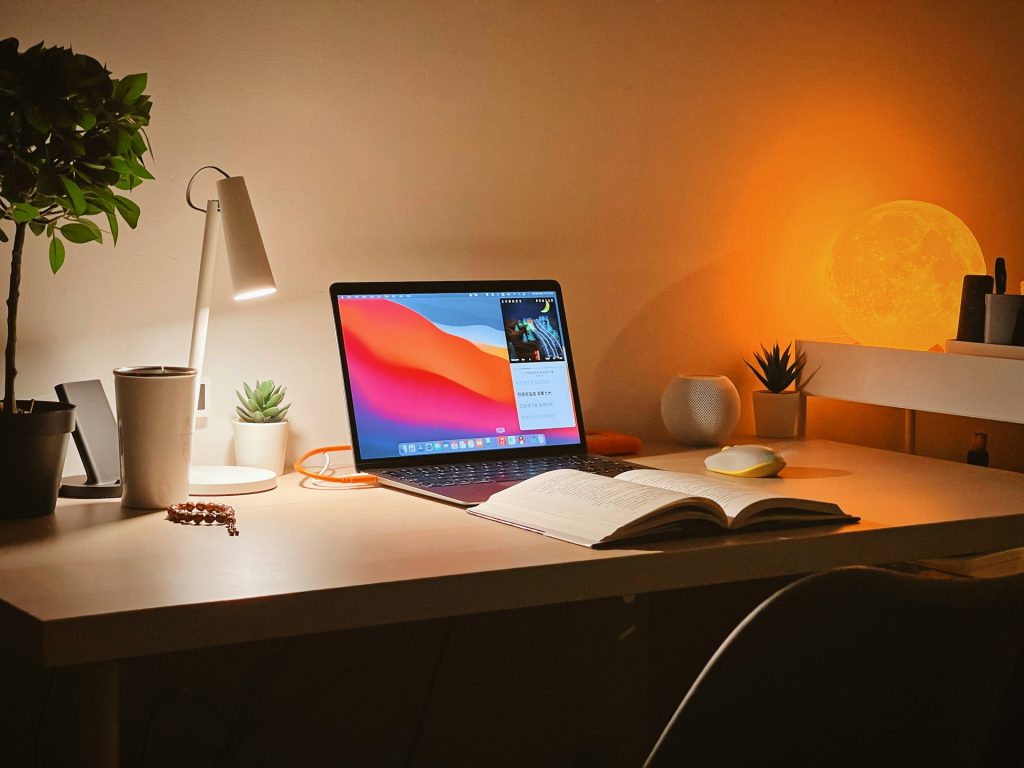Table of Contents
For some, the cloak of night brings a surge of productivity that day hours can’t seem to ignite. This nocturnal burst of energy isn’t just about preference—it’s deeply embedded in the biology of night owls’ internal clocks. Contrary to popular belief, being a bird or a night owl isn’t a simple choice; it’s often a genetic predisposition.
When the sun dips below the horizon, night owls feel their energy levels rise and their brains become more focused and energized, ready to tackle tasks that seemed daunting by daylight.
The Science Behind Night-Time Productivity
The human body’s biological clocks are intricate systems that regulate the timing of sleep at night and activity during the day. For night owls, these clocks tick at a different rhythm from early risers. Research has shown a genetic material link, suggesting a natural inclination for some to be more productive at night due to their inherited genetic markers. Moreover, brain chemistry plays a role, with nighttime bringing changes in cortisol levels and brain activity that favor heightened productivity.
While some may suffer from sleep apnea or other health concerns like type 2 diabetes that disrupt sleep and could be mistakenly interpreted as night owl tendencies, accurate data points to a subset of people whose peak productivity genuinely falls into the late hours, around 10 pm or later. Timo Partonen, a researcher, has highlighted how these natural patterns are shaped by a complex interplay of genes and environment, casting light on why some find solace in the quiet of the night for their most demanding tasks.
Additionally, the modern lifestyle, with its myriad of electronic devices and the glow of screens, can further influence our circadian rhythms. Night owls might find themselves active at night partly because their exposure to light from TVs, phones, and other devices pushes back their body clock, delaying the onset of REM sleep and disrupting the traditional bedtime routine. Yet, when the goal is to remain focused and energized, embracing these natural cycles can be beneficial, allowing night owls to capitalize on their unique patterns of alertness.

Psychological Factors Contributing to Nighttime Productivity
Below are the factors contributing to nighttime productivity:
Reduced Distractions
As the world quiets down and coworkers are asleep, the night offers a sanctuary free from the barrage of phone calls, emails, and notifications that dominate daylight hours. This reduction in external stimuli allows those productive at night to delve into deep work with fewer interruptions. It’s not just the ambiance—it’s a practical benefit that facilitates efficient, focused labor, transforming the stillness of the night into a powerhouse of productivity.
Personal Preferences and Chronotypes
Your chronotype dictates when you’re naturally inclined to fall asleep and when you’re most alert. It’s genetic, like inheriting your parents’ eye color or height. For night owls, their chronotype aligns with later hours, meaning their internal clocks are set to buzz with energy and concentration levels as the sun sets. This isn’t just a quirky preference; it’s an ingrained biological rhythm that dictates their most productive spans.
While early birds or larks may thrive with the sunrise, night owls hit their stride when the stars are out. This isn’t a one-size-fits-all world; some folks have genetic markers that make night their prime time. Recognizing and respecting these personal rhythms is key to unlocking one’s full potential, day or night.
Stress and Mental Clarity
For many, the tranquility of night acts as a balm to the stresses of the day, facilitating a clearer mental state conducive to productivity. With cortisol levels naturally ebbing, the stress hormone cortisol doesn’t exert the same influence as it does during daylight, allowing for a more serene approach to tasks. This can lead to a more thoughtful, measured approach to work, often resulting in higher-quality outcomes.
Sense of Accomplishment
Completing tasks while the world sleeps can imbue night owls with a profound sense of accomplishment. There is something uniquely satisfying about burning the midnight oil and achieving goals when most are at rest. This can boost confidence and motivation, spurring a virtuous cycle of productivity that can extend beyond the nocturnal hours.
Environmental Factors Contributing to Nighttime Productivity
Several environmental factors can contribute to enhanced productivity during the night.
Quiet and Calm Atmosphere
The quiet of the night provides a setting that many find conducive to deep concentration and creative thought. Without the din of daytime activities, night owls can immerse themselves in their work, often leading to breakthroughs and innovations that elude them during busier hours.
This serene backdrop is more than just a lack of noise; it’s an environment that naturally fosters focus. The stillness allows for uninterrupted thought processes, making it an ideal time for tasks that require significant mental bandwidth.
Technology and Screen Time
While electronic devices are omnipresent regardless of the hour, the way we engage with technology at night can be quite different. Research has shown that the blue light from screens can disrupt sleep patterns, but for some, this nighttime interaction with technology is precisely what enables them to hit their stride.
Whether it’s the lack of incoming work emails or the ability to engage with digital tools without distraction, the relationship between night owls and their devices can be a productive one. This quiet interaction can help maintain focus and drive projects forward without the interruptions that daytime screen time often entails.
Lighting and Ambiance
Lighting plays a crucial role in setting the mood for productivity. At night, the absence of harsh natural light and the soft glow of indoor lights can create an ambiance that many find conducive to focus and creativity. This controlled environment allows night owls to curate a space that aligns with their productivity needs.
TV screens and other sources of illumination can also be managed to suit the individual, providing just the right level of light to work effectively without the strain or distraction that daytime brightness can cause. This customization of the workspace ambiance is a subtle but powerful tool in the arsenal of the night owl.
Advantages of Nighttime Productivity
The night offers unique advantages that can facilitate productivity.
Enhanced Focus and Concentration
As the world winds down, many find their concentration levels spiking. Nighttime seems to unlock a level of focus that isn’t as readily accessible during the day. This enhanced concentration can lead to more effective problem-solving, faster learning, and higher-quality work output.
It’s not just about quiet—it’s about tapping into a time when the brain is naturally more attuned to the tasks at hand. For those who are productive at night, this can be the key to unlocking their full potential and achieving peak productivity.
Uninterrupted Time
With fewer demands on their time, night owls can enjoy long, uninterrupted stretches of work. This can be particularly beneficial for complex or creative tasks that require sustained attention and thought.
Without the need to pause for meetings or respond to the constant ping of notifications, those who work best in the wee hours can maintain a steady workflow that might be impossible during the busier daytime hours.
Improved Creativity and Problem-Solving
Nighttime can be a fertile ground for creativity and innovation. The solitude and stillness can spark inspiration, allowing ideas to flow more freely than they might amidst the distractions of daylight.
This creative zest isn’t just anecdotal—studies suggest that the brain may be more adept at divergent thinking when it’s not being bombarded by the stimuli of the waking world. For those who find their muse after dark, the night can be the perfect partner in the dance of creativity.

Potential Drawbacks of Nighttime Productivity
Sleep Deprivation
When the night beckons with a promise of productivity, it’s easy to overlook the need for shut-eye. But here’s the rub: skimping on sleep can turn your brain into a slow-motion version of its daytime self. You might be nailing tasks at night, but at what cost? We’re talking about a heightened risk of obesity, not to mention heart disease lurking in the shadows. It’s a tricky trade-off—burning the midnight oil now could mean your health pays the price later.
And let’s not forget the mental maze you’ll find yourself in with insufficient rest. A sluggish brain, mood swings like a pendulum, and a focus that’s fuzzier than a vintage TV screen—yep, that’s the sleep-deprived life. The key is to catch enough Z’s to keep your performance peppy and your health humming along.
Social Isolation
Now, let’s chat about the social scene—or the lack thereof—for the night owls among us. While the world snores, the solitary silence of the wee hours can make social butterflies feel like they’re stuck in a cocoon. It’s a paradox, really; night owls can be social creatures by nature, yet the nighttime hustle can leave them feeling like the only soul awake in a sleeping world.
What’s more, this nocturnal nesting can lead to missing out on daytime social events, leading to a sense of isolation that no amount of screen time can remedy. Balancing the scales between night shifts and social sips is crucial for keeping that happy and productive vibe alive.
Health Concerns
Turning the tables on the traditional day-night cycle comes with its own Pandora’s box of health concerns. Night owls, listen up: working late can tweak the very fabric of your well-being. Your body’s internal clock is tuned to the sun’s comings and goings, not your project deadlines. And while we’ve long left our hunter-gatherer days behind, our biology is still playing catch-up with our 24/7 lifestyle.
Researchers have thrown up red flags, signaling increased risks of not-so-fun stuff like sleep apnea, type 2 diabetes, and hypertension for the night-shift crowd. So while you’re defying the conventional clock, it’s smart to keep an eye on your health to ensure your late-night productivity isn’t costing you more than just sleep.
Tips for Optimizing Nighttime Productivity
Establishing a Nighttime Routine
Ah, the circadian rhythm—it’s like a daily dance your body does, dictating when you’re buzzing with energy or ready to crash. Night owls, early birds, and everyone in between, we’ve all got our rhythm. But regardless of your chronotype, consistency is key. Carving out a nighttime routine that respects your body’s natural tempo can transform your twilight hours into a powerhouse of productivity.
So, whether you’re burning the candle at both ends or just one, a structured schedule can keep your internal drummer in the groove. Align your work, your wind-down, and your wander to bed within a reliable framework to keep your night game strong.
Balancing Nighttime Work with Sleep
Let’s talk balance—the kind that keeps your energy levels soaring and your sleep at night restorative. It’s a delicate dance, finding that sweet spot where work doesn’t rob your rest. Sure, you can conquer the world while others slumber, but remember your bed is more than just a furniture piece; it’s a nightly retreat for your brain and body.
Sticking to a bedtime that doesn’t see the sunrise is a solid start. You’re syncing your body’s internal clock with nature’s lullaby, ensuring you’re not just awake, but truly alive during those moonlit hours. A consistent bed and waking time isn’t just good sense—it’s good science.
Creating the Perfect Nighttime Workspace
Imagine a workspace that’s the stuff of night owl dreams—serene, streamlined, and oh-so conducive to cranking out work while the stars twinkle. Creating this nocturnal nirvana means tuning into the ambiance that tickles your productivity fancy. Think mood lighting, a dash of quiet, and maybe even a plant or two for good measure.
What you’re aiming for is a space that whispers, “Let’s get stuff done,” but also, “Hey, it’s OK to take a breather.” It’s about striking that balance between hustle and harmony, ensuring your nighttime toil feels more like a groove and less like a grind.
When to Seek Professional Help
So you’re a night owl, and you’ve got this nighttime productivity thing down pat—or do you? If the moonlit hours are taking a toll on your health or social life, it might be time to chat with a pro. We’re talking about those moments when you realize your late-night lifestyle is more of a struggle than a strategy.
Seeking help isn’t a sign of defeat; it’s a savvy move to ensure you’re not sacrificing your well-being for work. A professional can help you navigate the night, tweaking your routine, and maybe even your workspace, to align better with your health and happiness goals.
FAQs
1. Is it bad to be more productive at night?
Being productive at night isn’t inherently bad—it’s all about how you play your cards. Some folks are wired to work wonders when the sun sets, and that’s A-OK. But keep an eye on the clock; consistently punching in at 10 p.m. can mess with your sleep and social life. A sunlight alarm clock could be your new best friend, gently nudging you awake to catch some rays and reset your rhythm.
2. How can I shift my productivity to the daytime?
Want to flip the switch and join the daytime brigade? It’s doable with a pinch of patience and a dash of discipline. Your 24-hour cycle is a moldable thing, shaped by lifestyle choices like when you hit the hay and when you rise and shine. Gradually shifting your schedule earlier might just coax your productivity to frolic in the daylight.
3. What are the long-term effects of working at night?
Consistently being productive at night can be a double-edged sword. Sure, you might be the king or queen of the quiet hours, but over time, your reign could come with a cost. The long game includes potential risks to your physical and mental health, not to mention the social shindigs you might miss. Keep tabs on the trade-offs to make sure your nighttime hustle is sustainable.
Final Thoughts
In the quiet of the night, many find their minds come alive with ideas and energy. Embracing one’s natural inclinations can lead to a satisfying work rhythm, especially for those who thrive after dark. While the world sleeps, night owls can enjoy the peaceful solitude that fosters deep focus and creativity. However, it’s crucial to strike a balance, ensuring that the benefits of nighttime productivity don’t come at the cost of health or social connections.

Hi, I’m Zoë, the founder of Remote Work Wise. For the past decade, I’ve been immersed in the world of remote work, collaborating with businesses worldwide and leading large remote teams. Alongside my ventures in remote work, I also established Wild Lotus, a digital content agency.




